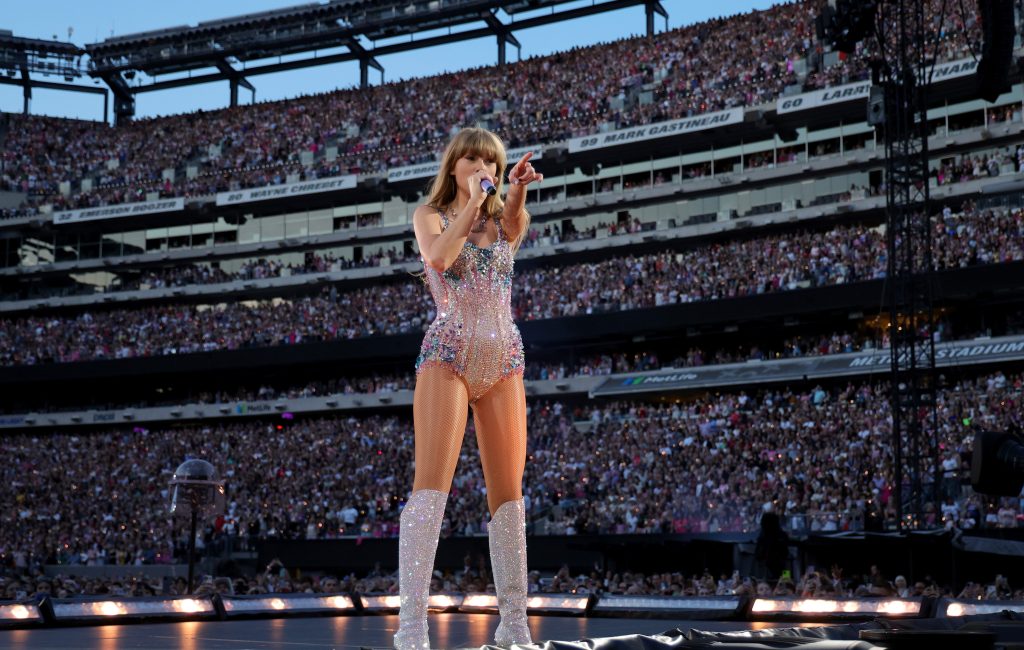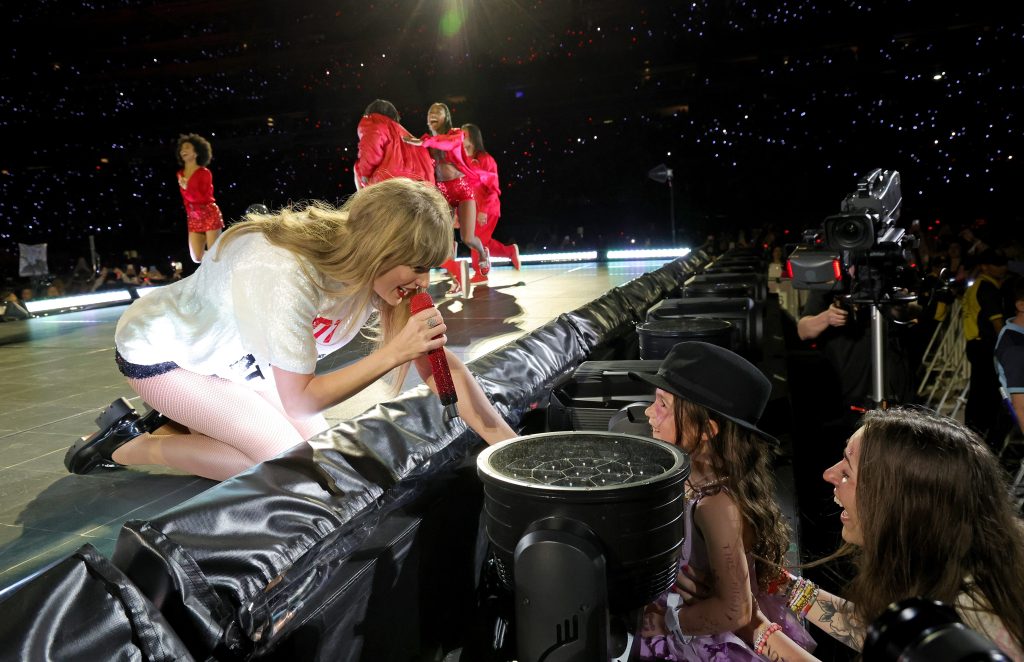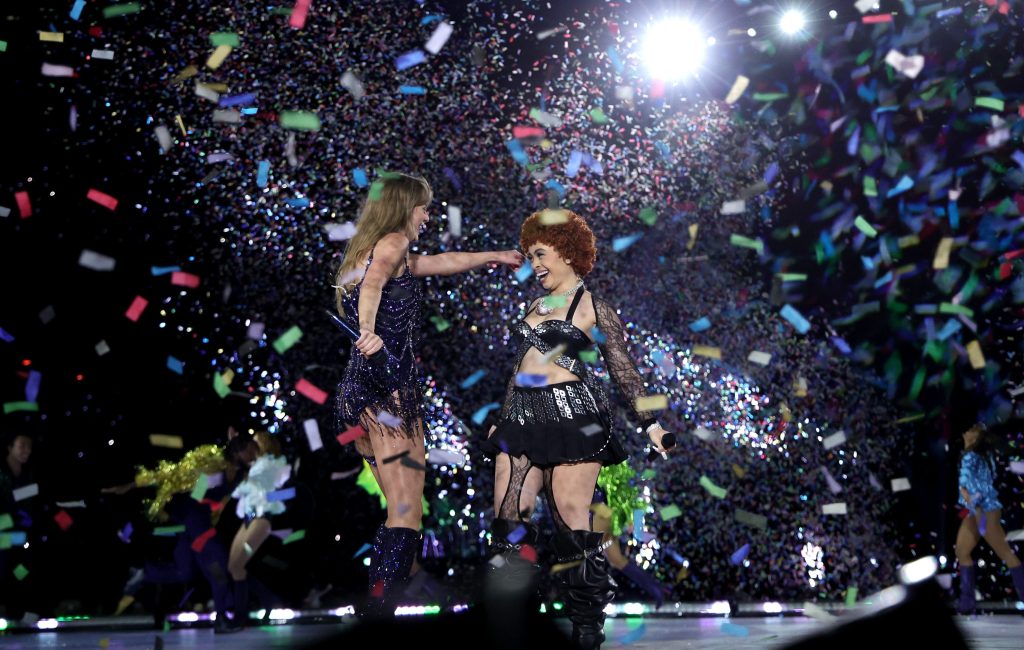Taylor Swift fans claim ‘post-concert amnesia’ due to bizarre phenomenon
Wind in your hair, you were there, you don’t remember it all too well.
Taylor Swift’s Eras Tour should be a night to remember — spanning 52 dates, 20 stadiums, 10 albums and 44 songs, each show lasting more than three hours.
But multiple fans are experiencing signs of amnesia after attending the concert.
“Post-concert amnesia is real,” Jenna Tocatlian, 25, told Time Magazine.
Tocatlian, from New York, went to see Swift, 33, at Gillette Stadium in Massachusetts — but she had spent so long dreaming about what it would be like to see the singer in person, she later claimed she couldn’t grasp what was reality.
“It’s hard to put together what you actually witness,” she said, sharing that it was probably a case of sensory overload. “You’re having all these emotions while your favorite songs are playing, and you’re like, ‘Wow, where am I?’”
Tocatlian added that during the hourlong wait to leave the stadium, she was looking back at the setlist and realized she couldn’t remember if the “Cruel Summer” singer had actually played many of the songs.
“If I didn’t have the 5-minute video that my friend kindly took of me jamming to [“Better Man”], I probably would have told everyone that it didn’t happen,” she admitted about one of Swift’s surprise songs of the evening.
Another fan, Nicole Booz, 32, from Gettysburg, Penn., attended Swift’s May 14 show in Philadelphia — and she described it as “an out-of-body experience, as though it didn’t really happen to me.”
“Yet I know it did, because my bank account took a $950 hit to cover the ticket,” Booz told the magazine.
It turns out Swifties aren’t the only ones who can’t “remember this moment.”
Experts say there’s a reason behind this occurrence — and you don’t even have to be at a concert for it to take place.
“This is not a concert-specific phenomenon — it can happen any time you’re in a highly emotional state,” Ewan McNay, an associate professor in the Department of Psychology at the State University of New York at Albany, told Time.
High levels of emotions have a lot to do with the feeling of forgetfulness.


“If you’re at a concert of someone you love, surrounded by thousands of very excited other people, listening to music you’ve got established emotional links to, that’s going to be a lot of emotion happening to you at one time,” neuroscientist Dr. Dean Burnett, honorary research associate at Cardiff University, said, per the Daily Mail.
“As well as being exhausting for the brain, it’s going to mean all the things you experience will have a high emotional quality, which means nothing ‘stands out,’ and that’s important if you want to retrieve a memory later.”
There’s biological and scientific evidence for why the body reacts that way.
As stress levels increase due to either excitement or distress, the neurons associated with memory begin to fire aimlessly. Glucose — the molecule for fueling memory, thinking and learning — pumps from the liver to the bloodstream.
The body believes it’s stressed and chooses not to waste its energy on memory formation. Vagal nerves, which regulate internal organ functions, also become stimulated in the process.
All of that causes the amygdala — the part of the brain responsible for emotional processing — to release norepinephrine, a neurotransmitter that helps mark certain events as highly emotional, increasing the likelihood that you’ll retain vivid memories of them.

However, McNay said this process is more like an “inverted U,” with a little excitement being good and too much being bad for memory.
“If you’re slightly on edge, with a little bit of excitement, you’ll actually remember better,” he said. “But too much excitement pushes you over the edge in terms of memory formation, and you’re unable to make memories.”
Robert Kraft, a professor of cognitive psychology at Otterbein University in Ohio, admitted that while it’s upsetting not to remember things we look forward to, it’s inevitable.
“We paid a lot of money, we’re looking forward to it, and afterwards, we want to luxuriate in our memories of the concert,” Kraft told Time. “But our expectations are too high. That’s not what memory is — it’s not a recorder.”

He noted that forgetting big memories isn’t a sign of deficiency, but rather a reminder that our brains aren’t built to recall everything.
“We don’t set out to remember our lives — we set out to experience them,” Kraft said. “Not remembering is actually a tribute to being in the moment and enjoying it.”
So if you attended a concert that you can’t seem to remember, don’t worry — you were living in the moment.
As Swift says in her song “Fearless”:
“In this moment now, capture it, remember it.”
Read the full article Here


